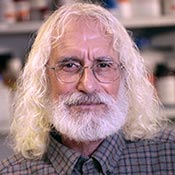
Philip Greenberg, MD
Member & Head, Program of Immunology, Clinical Research Division, Fred Hutch
Professor of Immunology and Medicine, University of Washington
Faculty Profile
Featured Researcher Profile
Dr. Greenberg is a founding member of the Fred Hutch Program in Immunology and the Department of Immunology at the University of Washington. He is one of the first scientists to investigate how T cells can recognize and eliminate malignant cells and is a member of the first group to formally demonstrate that adoptive transfer of antigen-specific T cells can eradicate disseminated cancer cells. In what was then a very surprising finding, in 1981 they showed that tumor antigen-specific CD4+ T cells can provide help to CD8+ T cells and promote tumor eradication. This paper was recently republished by the Journal of Immunology as a “Pillar of Immunology.”
In the early 1990s, Greenberg and colleagues showed that T cells could be collected from a patient’s blood, purified and expanded in the lab and reinfused as therapy. At that time, there was no effective drug therapy for cytomegalovirus (CMV) infection, which was the major cause of non-relapse mortality after donor (allogeneic) HCT. They showed for the first time that the transfer of donor- derived CMV-specific CD8+ T cell clones could protect immune-compromised patients from CMV infection. Their findings also led to adoptive therapy approaches to help control HIV infections.